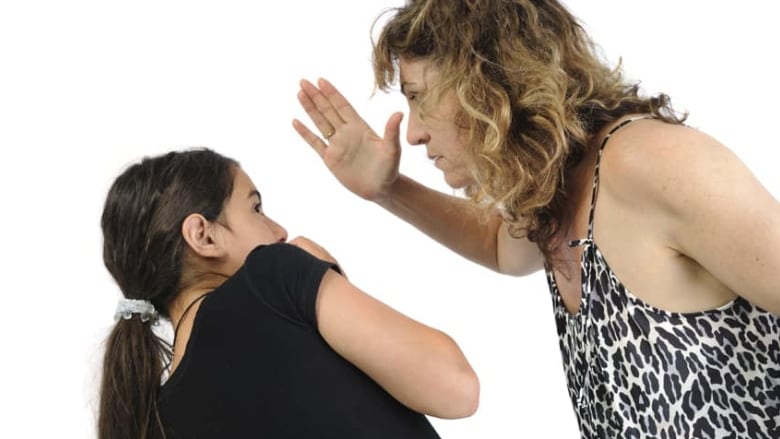Kansas spanking bill slapped down
Corporal punishment allowed in 19 states, but anti-spanking advocates want total ban

A Kansas legislator sparked a spanking controversy recently with a bill that aimed to define corporal punishment by saying 11 strikes is one too many but 10 would be allowed, and the spanks could be hard enough to leave a bruise.
Our position is one is too many, Deborah Sendek, a program director at the Center for Effective Discipline, said in an interview. The bill was in complete contradiction to the work of her organization, which seeks to ban corporal punishment, in homes and schools across the United States.
The proposed legislation said strikes must be administered with a bare, open hand against the clothed buttocks of a child. Parents could give written permission to teachers to hit their child, and there was no age limit on who could be spanked. As long as they were in school, even high school students over the age of 18 could be subject to corporal punishment, according to the bill.
Spanking is already legal in Kansas and Representative Gail Finney, a Democrat, said her bill was intended to provide guidance to law enforcement and parents, and to protect Kansas children from abuse.
Some people had a hard time understanding how writing into law that a parent, caregiver, or teacher should legally be allowed to hit a child 10 times in a row with enough force that redness or bruising may occur on the tender skin of a child as a result would offer protection from abuse.
Finneys proposal was mocked on late-night television courtesy of Jon Stewart and critics called the proposed legislation state-sanctioned child abuse.
She explained that the current law is ambiguous, that there is no clarity on what is permissible corporal punishment and what is child abuse, and that confusion has led to criminal charges against parents in some instances and to child abuse going unpunished in others.
Bill quickly rejected
This legislation is not, as has been incorrectly reported, intended to legalize child abuse in Kansas, Finney said in a statement. This legislation only seeks a consistent application of parental corporal discipline across all of Kansass 105 counties.
Finneys bill was virtually dead on arrival. The chair of the corrections and juvenile justice committee quickly said it wouldnt be considered. But it still generated plenty of debate about corporal punishment, particularly in schools.
Kansas is one of 19 states where corporal punishment is allowed. Some individual school districts in those states, particularly in big cities, have banned it while others require written permission from parents.
Sendek says she knows its hard to believe that teachers are allowed to hit students, but it happens, and they have tools at their disposal.
They use wooden paddles, some are made of plexiglass, to enforce discipline in classrooms, she said. These kids are paddled sometimes for things that you would almost laugh at if it wasnt so serious, she said. You would hit somebody because their shirt is untucked?
Teachers in Canada can use reasonable force to restrain a student but are not allowed to hit. A landmark ruling from the Supreme Court in 2004 laid out how parents are allowed to use corporal punishment.
Advocates for abolishment have been encouraging Ottawa to repeal section 43 of the Criminal Code, which provides a defence for parents to hit their children.
Canada has two important steps to take, said Mary Birdsell, executive director of Justice for Children and Youth in Toronto. Shed like to see Canada follow the examples of 36 other countries most recently Turkmenestan and Macedonia that have banned all forms of corporal punishment.
Canadian schools an example
An irony that exists in Canada is that the federal government continues to say that theyre concerned about abuse and violence against children, they have a tough on crime agenda and yet are not seeing children as victims in the context of being assaulted in their own families, she said.
Canada has signed the United Nations Convention on the Rights of the Child, which says children should be free from violence, while the U.S. has not, Birdsell noted.
Advocates in the U.S. point to Canadas prohibition of spanking in schools as a good example.
In Canada youre educating students very effectively without using corporal punishment, Sendek said.
There is not a teacher education program in the U.S. that teaches how to paddle, how to do that without causing an injury. Where do you learn how to do that? she added.
Sendek and other critics of corporal punishment say the outrage over the Kansas bill was proof that attitudes are changing in the U.S.
Murray Straus, a sociologist who has studied corporal punishment for decades, said many parents still spank but they do it about half as often as they used to, and they stop doing it sooner. The typical age for quitting was around 15 or 16 and now its around 12 or 13, according to Strauss, a University of New Hampshire professor.
Its dropping rapidly, he said, noting teachers, like parents, are using corporal punishment less often.
When they do it, it sometimes makes headlines, such as a case in Texas in 2012. Parents of two female teenaged students complained not about the paddling punishment, but that it was doled out by a man that broke the rules. The school board ended up changing the rules so educators of the opposite sex could give the paddling. There was apparently not enough women staff.
The most recent statistics from the department of education show that 217,814 U.S. students received corporal punishment in the 2009-10 school year.
One member of Congress, Carolyn McCarthy, has been trying to get a federal ban on paddling that would apply to schools nationwide but in the meantime, advocates are taking aim at one school district at a time.












_(720p).jpg)


 OFFICIAL HD MUSIC VIDEO.jpg)
.jpg)



























































































